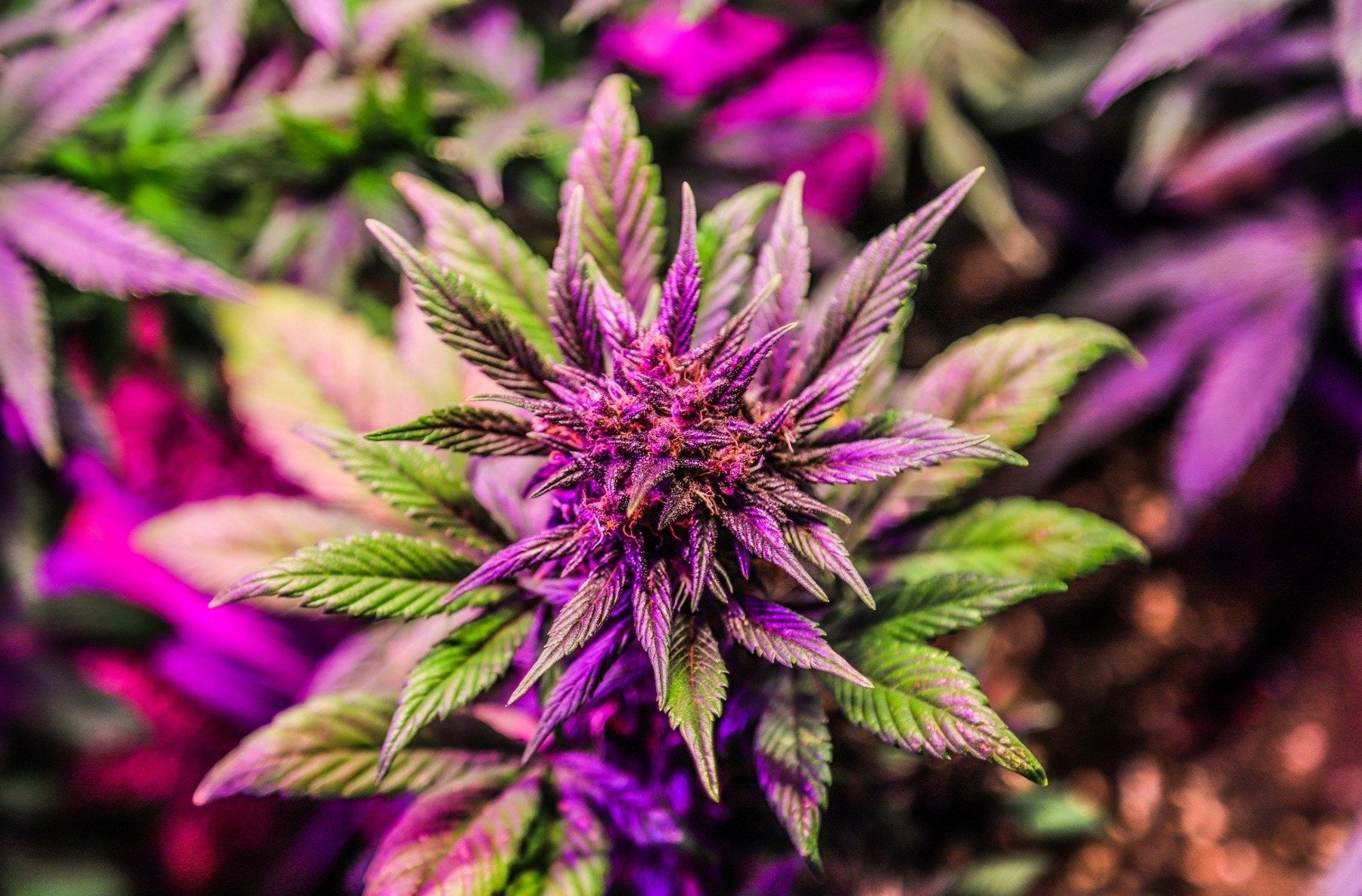
Marijuana Consumers Are More Likely To Shop At Target Following Decision To Sell Cannabis-Infused Drinks, Poll Shows
In the ever-evolving retail landscape, where shopping carts collide with cultural shifts, Target has just uncorked a bold new chapter. Picture this: the red bullseye logo, long synonymous with affordable chic and suburban hauls, now beaming alongside shelves stocked with THC-infused seltzers. It's not a fever dream from a late-night munchies session—it's reality, courtesy of a pilot program in Minnesota stores. A fresh poll reveals that over half of marijuana consumers are buzzing with enthusiasm, ready to steer their carts toward Target's aisles more often. This isn't just about a trendy drink; it's a seismic signal of how cannabis culture is infiltrating mainstream commerce, potentially reshaping loyalties in a market where alcohol's fizz is flatlining. As we dive into the data, the dollars, and the debates, one thing's clear: Target's gamble could be the high-stakes pivot that reignites its foot traffic fire.
Bullseye on Buzz: The Poll That Lights Up Retail Loyalties
Let's cut to the chase—or in this case, the survey results that have marketers inhaling deeply. Conducted by NuggMD between October 16 and 27, 2025, the poll tapped into the minds of 285 cannabis consumers, boasting a margin of error of just ±5.8 percent for statistical solidity. The golden question? "Last week, news broke that Target has started selling THC-infused cannabis beverages in some stores. Does knowing this make you more likely to shop at Target in the future?"
The verdict landed like a perfectly rolled joint: 50.5 percent said yes, an unequivocal nod to the power of product placement in winning wallets. Breaking it down, 34.4 percent— that's 98 respondents—would flock to Target only if their local outpost stocks the goods, proving proximity packs a punch in consumer calculus. Meanwhile, 16.1 percent, or 46 voices strong, pledged allegiance regardless of location, championing the brand's broader bold move. On the flip side, 49.5 percent, numbering 141 skeptics, shrugged it off as business as usual, unmoved by the herbal infusion.
Andrew Graham, NuggMD's head of communications, nailed the intuition behind these numbers: "What the poll shows should be pretty intuitive to all big-box retailers: Selling products that contain hemp-derived THC, which is currently federally legal, will bring more cannabis consumers into those stores." It's a clarion call for chains everywhere—ignore the green wave at your peril. This isn't mere anecdotal affinity; it's quantifiable clout in an era where 22 percent of Americans report using cannabis in the past year, per recent federal data. For Target, reeling from a 1.3 percent dip in store traffic during Q2 2025, these poll points could translate to tangible turnstiles, especially among millennials and Gen Z, demographics where cannabis curiosity runs rampant.
Sipping the Future: Target's Daring Dive into THC Territory
Target's foray into forbidden fruit isn't a haphazard high; it's a calculated cocktail shaken with market savvy. Launching in late October 2025, the pilot confines itself to select liquor departments within Minnesota stores—the retailer's home turf, where state laws greenlight hemp-derived THC products with under 0.3 percent delta-9 THC. Buyers must flash ID proving they're 21-plus, and each serving caps at 5 milligrams of THC, ensuring a mellow rather than manic experience. Brands like Cycling Frog and Cann are on the roster, offering fizzy seltzers and social sippers that promise relaxation without the regret of a hangover.
Why now? Target's spokesperson distilled it succinctly: "At Target, we’re always exploring new ways to meet our guests’ evolving preferences and needs." Beneath the polish lies pragmatism. The chain's Q2 2025 earnings painted a prickly picture: net sales slid 0.9 percent to $25.2 billion, with comparable sales tumbling 1.9 percent amid that pesky traffic drop. Whispers of boycotts over scaled-back DEI initiatives earlier in the year added insult to injury, eroding the inclusive vibe that once defined the brand. Enter THC beverages as the olive branch—or perhaps the olive twist—in a bid to lure back the lost.
As the first big-box behemoth to bet on this buzz, Target stands apart from liquor giants like Total Wine & More, who've dabbled longer but lack the everyday allure. With 1,989 stores nationwide serving 30 million weekly shoppers, even a modest uptick from cannabis-curious crowds could cascade into crores. Imagine the impulse buy: grabbing diapers and delta-8 mocktails in one swoop. Graham echoes the optimism, quipping, "By responsibly selling hemp-derived THC products, Target is kind of doing what Congress still won’t, which is providing access to THC to adults who want or need it." It's retail rebellion wrapped in responsibility, positioning Target not just as a store, but a statement.
From Hangover to High Tide: The Surging Wave of Cannabis Cocktails
Zoom out, and Target's tipple is but a ripple in a roiling river of reefer renaissance. Cannabis-infused drinks are exploding, even as America's love affair with liquor wanes. A July 2025 Gallup survey clocked U.S. adult alcohol consumption at a historic low of 54 percent—the dippiest since Prohibition's shadow in 1939. Health halos around booze are dimming, with more folks viewing moderate imbibing as a health hazard. Enter THC elixirs: low-cal, sugar-free sirens that onset in 15 to 20 minutes, faster than the foggy fog of edibles.
The numbers intoxicate. Whitney Economics pegs 2024 legal THC beverage sales at around $1 billion, with projections soaring to $5.6 billion by 2035—a compound annual growth rate that'd make venture capitalists vaporize with envy. Broader estimates whisper even wilder winds, valuing the sector at $9.9 billion to $14.9 billion in untapped potential. Fueling this frenzy? A bounty of 500 to 750 brands, from niche newcomers like Nowadays ("the future of drinking is here") to heavy hitters like Pabst and Lagunitas pivoting from pints to puffs in liquid form.
Demographics decode the drive: women in their 30s and 40s are the vanguard, swapping sunset sauvignon for sunset spritzers. No calories, no crashes—just calm in a can. Legal landscapes lubricate the lift, with sales permissible in 44 states and 37 allowing off-dispensary distribution. Georgia's Scofflaw Beverage Co. exemplifies the entrepreneurial effervescence, shipping nationwide and forecasting THC turnover 10 to 20 times their beer baseline. Yet, caveats cloud the cocktail: Dr. Céline Gounder warns of risks like anxiety spikes, heart palpitations, and a 30 to 40 percent hike in car crash odds post-puff. It's progress with a peril proviso.
This tide tilts not just tastes but traditions. Beau Whitney, Whitney Economics' chief economist, spots a "replacement factor" swapping spirits for sips, echoing how craft beer once corked wine's dominance. For retailers, it's retail rocket fuel—cannabis consumers, often young and affluent, boast higher disposable incomes, per Nielsen reports. Target's timing? Impeccable, tapping a demographic ditching draft for delta.
Clouds on the Horizon: Federal Fogs and Cultural Clashes
No high comes without haze, and Target's thrust thrusts it into turbulent times. Federally, hemp-derived THC dances on a legal tightrope post-2018 Farm Bill, which decoupled hemp from marijuana but left intoxicating offshoots in limbo. A bipartisan bloc of 39 state attorneys general clamors for clarity, urging Congress to redefine hemp sans quantifiable THC. GOP firebrand Sen. Rand Paul vows to torpedo spending bills blocking a ban, countering with a call for state-model studies.
Social media simmers with schisms. Reddit rants rail against Target's DEI detours, with users like SomeLostGirl declaring, "Cool, Target is still dead to me until they reinstate their DEI practices." Boycott echoes linger, questioning if THC temptations trump trust erosion. Yet, for cannabis cohorts, it's a coup—normalizing a once-niche nectar in neon-lit normality.
Broader ripples? This could catalyze copycats, from Walmart to Whole Foods, blurring botanicals into banal buys. Michelle Rutter Friberg of the National Cannabis Industry Association hails the "consumer enthusiasm and entrepreneurial success," but cautions on overreach. As polls prophesy patronage, Target's test teeters on transformation—or a buzzkill bust.
Toasting Tomorrow: Will Target's Toke Tokenize Triumph?
As the calendar flips to November 2025, Target's THC trial tantalizes as a template for tomorrow's trade. The NuggMD poll's 50.5 percent pledge isn't pocket change; it's a portal to revitalized revenue streams, potentially padding that $25.2 billion bottom line. In a world where wellness whispers supplant wild nights, cannabis consumers crave convenience—and Target, with its ubiquitous ubiquity, delivers.
Graham's hope for national expansion rings resonant: a buy-local bias bows to big-box benevolence. Risks remain—regulatory reversals, road safety reckonings—but rewards gleam. This isn't mere merchandising; it's a manifesto for mature markets, where marijuana meets the masses on Main Street. So next time you spy that bullseye, ponder: is it homing in on your heart, or just high on hype? One cart at a time, the answer unfolds. Raise a (non-alcoholic, perhaps?) glass to the green frontier—Target's leading the charge, and consumers are lining up.
Target's bold THC-infused drink launch has cannabis fans buzzing—50.5% more likely to shop there, per NuggMD's poll. As big-box retailers chase this $5.6B boom by 2035, savvy wholesalers are stocking up on premium hemp-derived seltzers that deliver mellow vibes without the hangover.
Enter D Squared WorldWide: Your gateway to Cycling Frog-inspired fizz and Cann-style calm, crafted for impulse buys in liquor aisles. Low-cal, fast-onset, federally compliant—perfect for millennials ditching booze. Boost foot traffic, skyrocket sales, and normalize the nectar.
Ready to bullseye your margins? Schedule a call today at d2worldwide.com/call—let's infuse your shelves with success!
Reference:
1. Hall, W. and Lynskey, M. (2020). Assessing the public health impacts of legalizing recreational cannabis use: the us experience. World Psychiatry, 19(2), 179-186. https://doi.org/10.1002/wps.20735
2. Hegde, V. and Nagarkatti, P. (2010). Cannabinoid receptor activation leads to massive mobilization of myeloid‐derived suppressor cells with potent immunosuppressive properties. European Journal of Immunology, 40(12), 3358-3371. https://doi.org/10.1002/eji.201040667
Hegde, V., Singh, U., Nagarkatti, P., & Nagarkatti, M. (2015). Critical role of mast cells and peroxisome proliferator–activated receptor γ in the induction of myeloid-derived suppressor cells by marijuana cannabidiol in vivo. The Journal of Immunology, 194(11), 5211-5222. https://doi.org/10.4049/jimmunol.1401844



